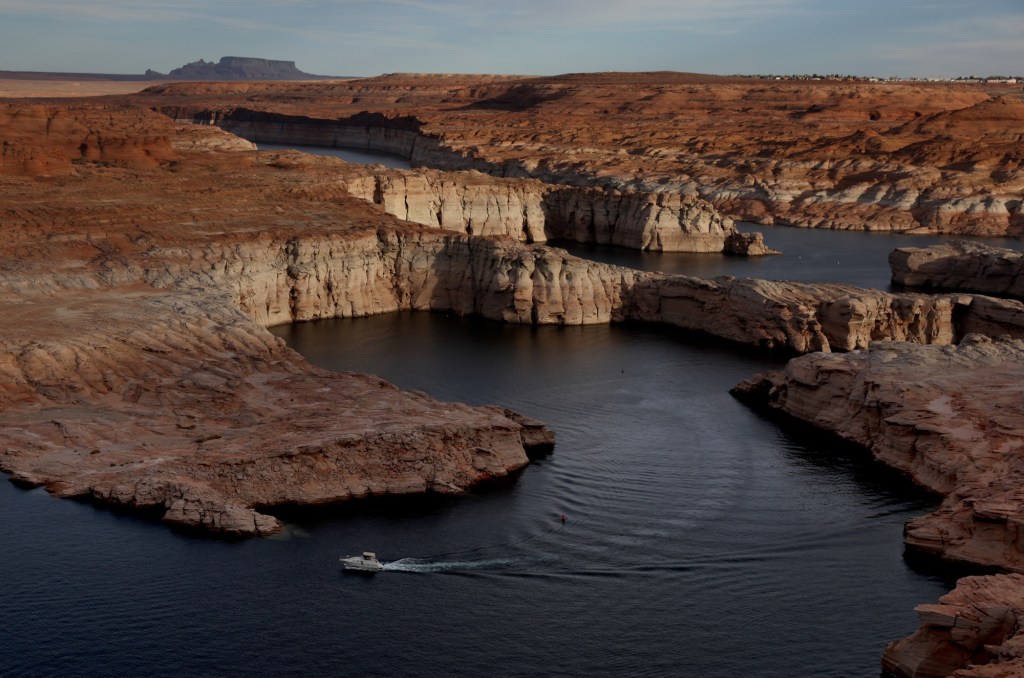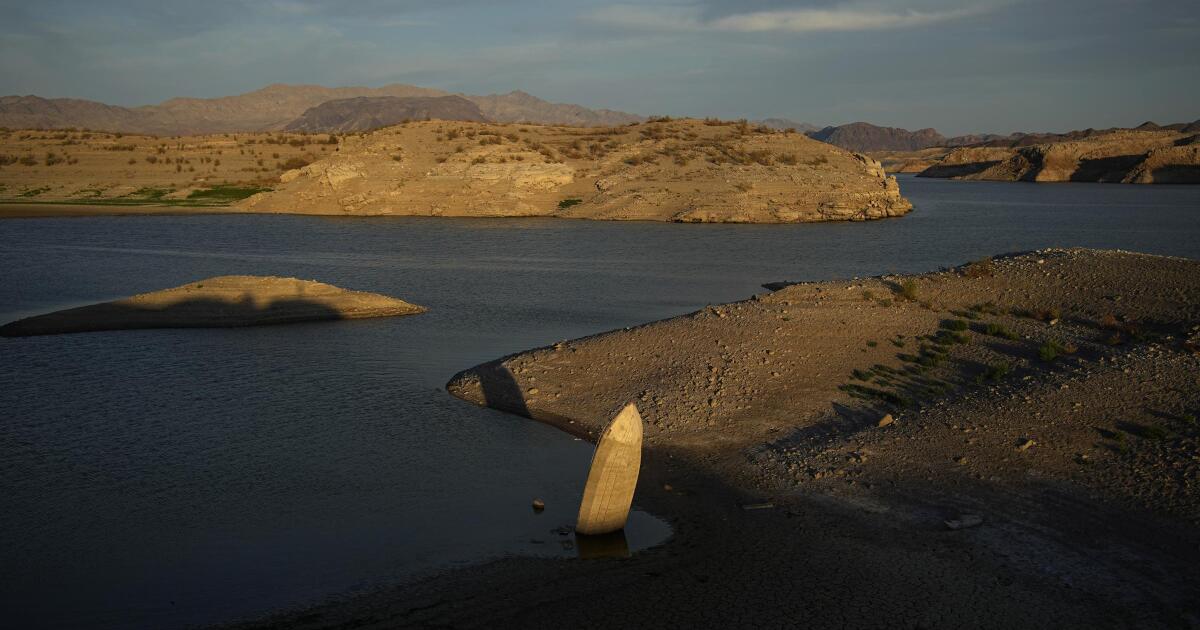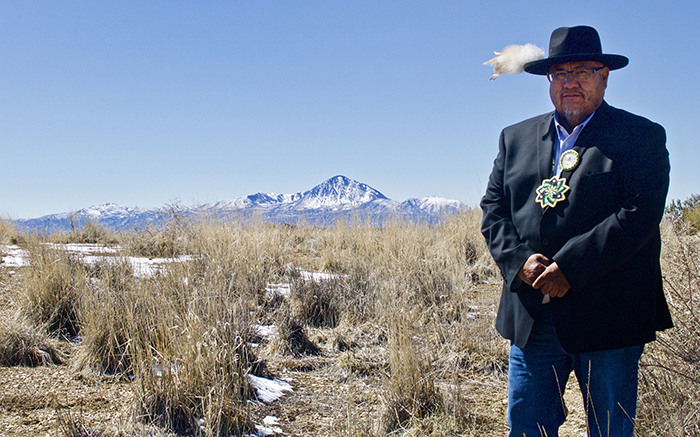L
longbow51
Guest
Read Desert Solitaire. Ed Abbey.Bruh idk much about this kinda stuff but that’s so insane that they built that big massive sob and it’s shitting out after like 60 years.
How tf did that happen?
Follow along with the video below to see how to install our site as a web app on your home screen.
Note: This feature may not be available in some browsers.
Read Desert Solitaire. Ed Abbey.Bruh idk much about this kinda stuff but that’s so insane that they built that big massive sob and it’s shitting out after like 60 years.
How tf did that happen?
I like the list. numbers 2 and 3 will be challenging, especially number 2.The progression in my mind is
1. Manage surface water allocations
2. Establish where groundwater is connected to surface water, incorporate those rights into the same system.
3. Establish minimum flows for recreation, aesthetics, and fish/wildlife
4. Manage non-surface water connected groundwater rights for "sustainable use"
5. Ensure ALL water use is managed (includes single family wells, stockwatering, etc).
6. STOP issuing new water rights! At this point it's all been spoken for, even in the wettest locations.
7. All forms of governments that either purvey water or control use (i.e. building permits) needs to setup a water bank, and fund it, annually, every year.
8. States need to fund adjudications. ID is so far ahead of WA in this regard it's shocking.
If all of those boxes are checked, we don't have difficult water problems. Expensive, maybe, but not difficult.
The progression in my mind is
1. Manage surface water allocations
2. Establish where groundwater is connected to surface water, incorporate those rights into the same system.
3. Establish minimum flows for recreation, aesthetics, and fish/wildlife
4. Manage non-surface water connected groundwater rights for "sustainable use"
5. Ensure ALL water use is managed (includes single family wells, stockwatering, etc).
6. STOP issuing new water rights! At this point it's all been spoken for, even in the wettest locations.
7. All forms of governments that either purvey water or control use (i.e. building permits) needs to setup a water bank, and fund it, annually, every year.
8. States need to fund adjudications. ID is so far ahead of WA in this regard it's shocking.
If all of those boxes are checked, we don't have difficult water problems. Expensive, maybe, but not difficult.
Yes but the sooner the better, with regard to first in timeI like the list. numbers 2 and 3 will be challenging, especially number 2.
Is the "big-ness" of the problems monetary or legal?all those boxes nearly are checked in colorado. i don't know if that means we are lacking in water problems though, certainly, in some ways it might be preventing more probelms. we're very established on surface water/groundwater connections with legislation which is huge in preventing some big problems.
i wouldn't say we have state funded adjudications though, to a degree with ISF. but they still have to compete in the free market for ISF adjudications.
i'm not sure if stopping new adjudications does much in a strict prior appropriation system, so as long as the new appropriation falls under the priority system. i mean new appropriations would continue to be harmful should your tributary aquifers not be legally recognized as connected to surface water, thereby having them not fall under the prior appropriation system.
Is the "big-ness" of the problems monetary or legal?
Great point! Numerous municipalities and water providers in close proximity often share the same supply. Each has developed and distributed water differently for decades. States also have complex laws based on historic sources and allotments which also come into play.IMO monetary problems aren't "big" problems.
Big problems arise when you don't have a legal framework to operate within and a physical lack of water. AZ, UT, and NV, maybe NM, have physical availability issues.
I am unaware of anywhere in the US that has truly reached a level where full on moratoriums are needed because there is insufficient water supplies for domestic uses. The only moratoriums I'm aware were placed to allow additional infrastructure or water rights to be acquired.The painful truth is we need building moratoriums in many areas. Perhaps permanent in some locations! But elected leaders can't make the proclamation.

 www.greeleytribune.com
www.greeleytribune.com

To Rein's point, the lower basin is allocated 7.5 maf and I think they are currently using in the neighborhood of 10.5 maf.anyone who is still following this.
lots of interesting pieces and tangles to this big nasty web. this sorta gives quick insight into the lack of understanding AND authority the federal government seems to have with what they are "threatening/demanding," for lack of a better term on my part.

Upper Colorado River leaders push back against federal ask for conservation
One of Colorado’s top water officials says he cannot enforce recent federal demands to start conserving more on the Colorado River. State engineer Kevin…knpr.org
She said the cutbacks should come from all corners of the watershed and all sectors of the economy.
“It’s states, it’s tribes, it’s water districts, it’s cities. In order to achieve this, we need to look broadly, and we need to look creatively,” Grantz said.

To Rein's point, the lower basin is allocated 7.5 maf and I think they are currently using in the neighborhood of 10.5 maf.
Tribes have rights to a huge portion of the river, and I doubt they utilize a fraction of it.

Colorado River crisis giving tribes new opportunities to right century-old water wrongs
Early involvement in negotiating new Colorado River guidelines will be critical for tribes to determine their future.waterdesk.org
Francis Utah issued a new construction moratorium last year. UTAH!I am unaware of anywhere in the US that has truly reached a level where full on moratoriums are needed because there is insufficient water supplies for domestic uses. The only moratoriums I'm aware were placed to allow additional infrastructure or water rights to be acquired.
Back in the day on the C-BT, my understanding was that Reclamation held the rights "in trust" for the benefit of the project. I agree, in that I don't see how a local office could operate a local project to the detriment of the project, regardless of the reasoning behind it, and have any legal leg to stand on. Forgoing diversions on the C-BT would certainly be detrimental.
The irrigation water for my fields is provided by the Grand Valley Project... so also waiting to see where this all goes.